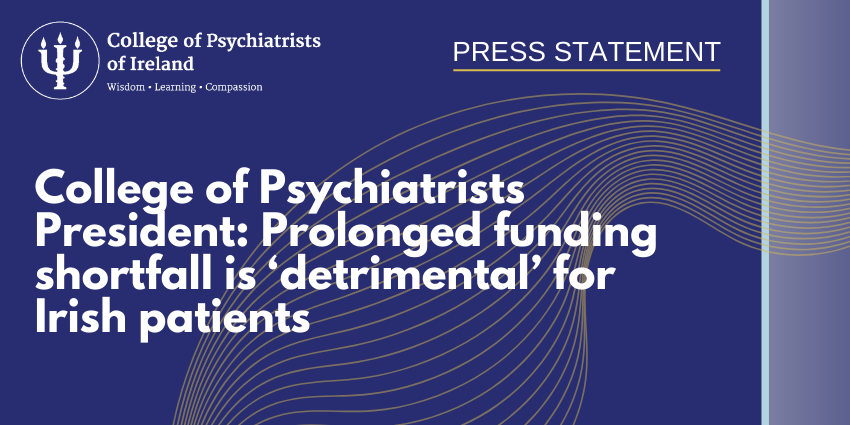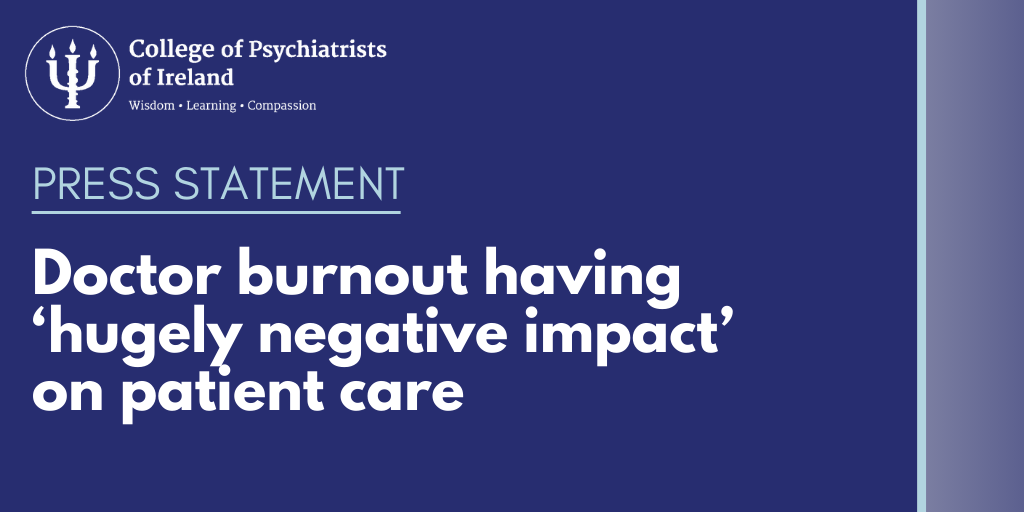Following the publication of A Model of Governance and Management Structures for Child and Adolescent Mental Health Services in Ireland on 25 March, Chair of the Child and Adolescent Psychiatry Faculty Dr Patricia Byrne wrote an opinion piece for the Irish Times, published today.
In it, she outlines the insufficiencies of CAMHS around the country which were brought into stark light in 2022, and how reform of the CAMHS governance structure would be a critical step toward a better standard of care for the most vulnerable in our society.
Read the article in full on the Irish Times here, and read some highlights from the article below:
On the findings of the Mental Health Commission (MHC) report in 2023:
The majority of Camhs teams operate with a skeleton staff. Addressing the lack of staffing was prevented by the HSE recruitment embargo in October 2023, and barriers continue at this time with the HSE Pay and Numbers strategy from 2024, which has resulted in a decrease of HSE staff working within the community sector.
On the proposed reforms:
These are substantial reforms that will transform the ability of the teams in Camhs to work for the patients they treat. The HSE’s streamlining of care into new RHAs (regional health areas) is continuing this year, which is why we see this as an essential time to reform a service that we should all be proud of. Children and young people who experience mental illness cannot afford to continue to wait. While childhood is short, the impact of mental illness in childhood can be lifelong.
On the unprecedented need for CAMHS services:
This generation of young people is facing greater mental health challenges than any preceding generation. The Government’s own estimate is that as many as one in five people aged 10-19 meet the criterion for a mental health disorder. It is critical we make sure we have systems in place to provide our young people with the care and support they so desperately need.




